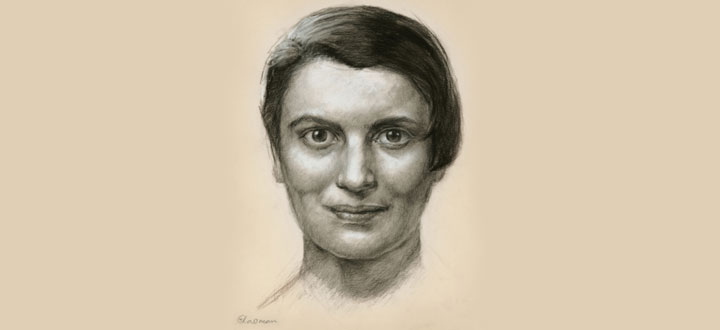Ayn Rand (1905–1982) was an American novelist and philosopher, and the creator of Objectivism, which she called “a philosophy for living on earth.”
Rand’s most widely read novels are The Fountainhead, a story about an independent and uncompromising architect; and Atlas Shrugged, a story about the role of the mind in human life and about what happens to the world when the thinkers and producers mysteriously disappear. Her most popular nonfiction books are The Virtue of Selfishness, a series of essays about the foundations and principles of the morality of self-interest; and Capitalism: The Unknown Ideal, a series of essays about what capitalism is and why it is the only moral social system.
Rand was born in Russia, where she attended grade school and university; studied history, philosophy, and screenwriting; and witnessed the Bolshevik Revolution and the birth of the Union of Soviet Socialist Republics. In 1925, she left the burgeoning communist state, telling Soviet authorities she was going for a brief visit with relatives in America, and never returned.
She soon made her way to Hollywood, where she worked as a screenwriter, married actor Frank O’Connor, and wrote her first novel, We The Living. She then moved to New York City, where she wrote Anthem (a novelette), The Fountainhead, Atlas Shrugged, numerous articles and essays, and several nonfiction books in which she defined and elaborated the principles of Objectivism.
Rand’s staunch advocacy of reason (as against faith and whim), self-interest (as against self-sacrifice), individualism and individual rights (as against collectivism and “group rights”), and capitalism (as against all forms of statism) make her both the most controversial and most important philosopher of the 20th century.
Describing Objectivism, Rand wrote: “My philosophy, in essence, is the concept of man as a heroic being, with his own happiness as the moral purpose of his life, with productive achievement as his noblest activity, and reason as his only absolute."
For a good biography of Rand, see Jeffery Britting’s Ayn Rand or Scott McConnell’s 100 Voices: An Oral History of Ayn Rand. For a brief presentation of the principles of Objectivism, see “What is Objectivism?” For the application of these principles to cultural and political issues of the day, subscribe to The Objective Standard, the preeminent source for commentary from an Objectivist perspective.









